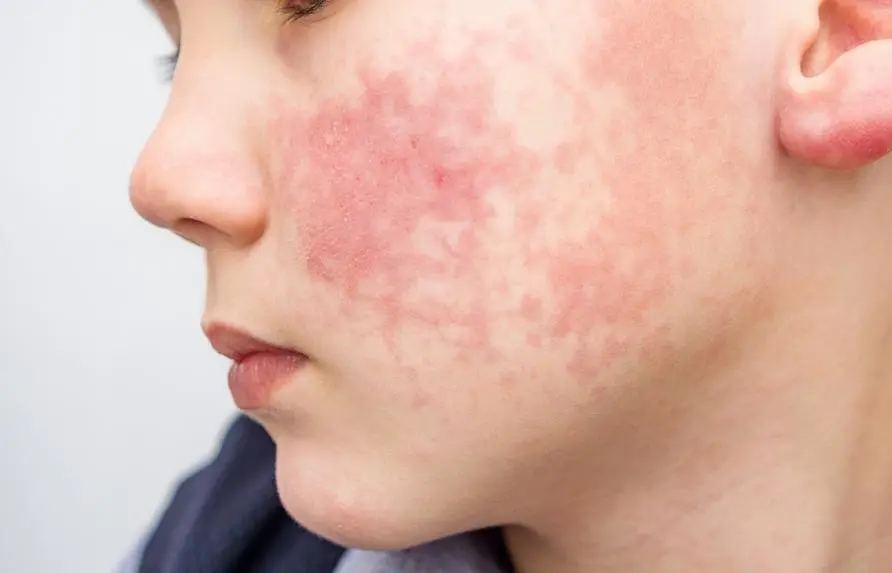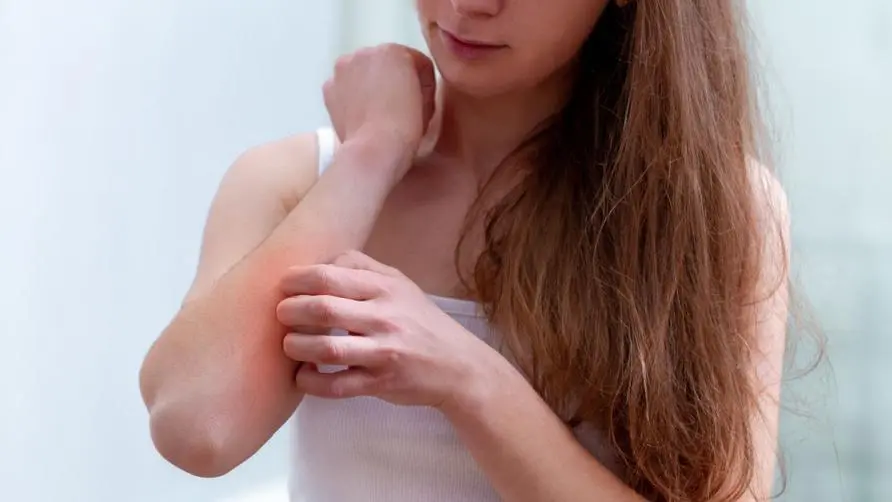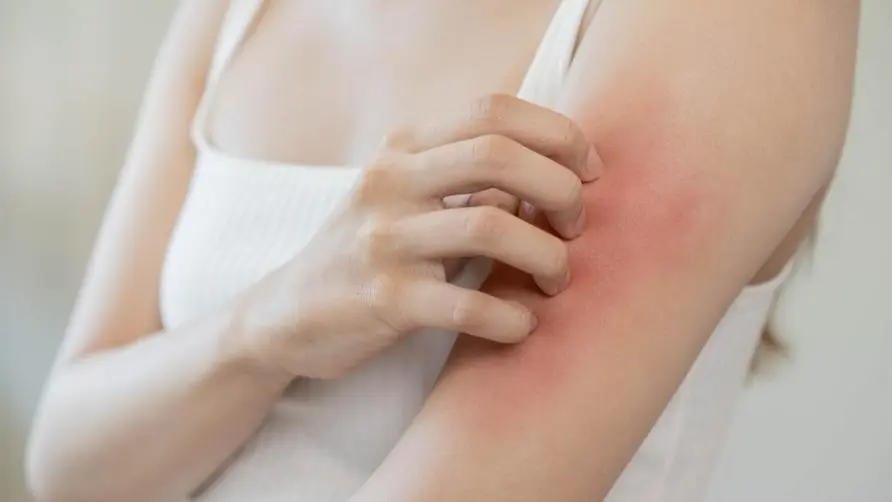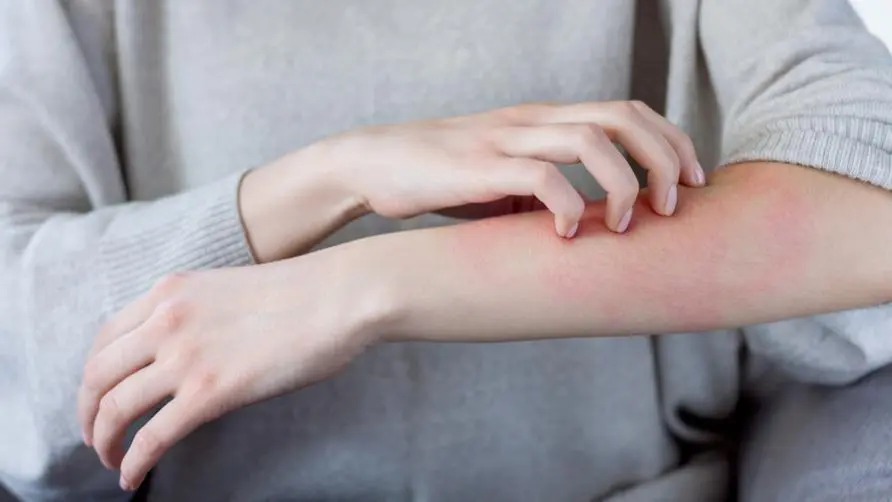Her skin has aged 40 years after taking "steroids"! Is the culprit actually "atopic dermatitis"?

Prevalence of atopic dermatitis increased 10 times! The girl’s skin looks like she is 60 years old
Due to environmental factors and exposure to a large number of chemicals, the proportion of allergic diseases among Taiwanese children is increasing every year. Hong Zhixing, chairman of the Taiwan Children’s Allergy, Asthma, Immunology and Rheumatology Society, pointed out that the prevalence rate of atopic dermatitis in Taiwanese children was only 1.4% in 1974, and has increased to 11.3% in 2019. However, in terms of prevalence rate, the proportion increased nearly 10 times.
Dr. Hong Zhixing said that the proportion of allergic diseases in children is on the rise, among which atopic dermatitis occurs earliest. About 65% of children with atopic dermatitis develop symptoms before they are 1 year old, and 85% of them will develop symptoms by the age of 5. pre-onset. In addition, the severity of atopic dermatitis will also increase the chance of asthma and allergic rhinitis when growing up, leading to the so-called “allergy march”.
“Children with atopic dermatitis will be better if they can be treated as early as possible!” Dr. Hong Zhixing explained that about 70% of patients with atopic dermatitis will experience improvement in symptoms when they are 3-5 years old. However, without proper treatment and care, atopic dermatitis may recur repeatedly, leading to more serious skin problems as adults. When the condition progresses to a moderate to severe condition, systemic treatment such as steroids may even be necessary.
Dr. Hong Zhixing said that a 17-year-old girl once went to the hospital and was shocked to find that her skin was abnormally aged and full of wrinkles due to atopic dermatitis, just like a 60-year-old man. Moreover, due to long-term use of steroids, my skin has become very thin, and my face and body are extremely chubby. However, improving the side effects of steroids often requires long-term conditioning. How to balance the treatment and side effects of moderate to severe atopic dermatitis has been a major problem in the past.
Repeated attacks of atopic dermatitis cause insomnia, worry, and damaged self-confidence
“If children want to have a future, we should allow them to receive better treatment as early as possible.” Dr. Hong Zhixing explained that in the past, moderate to severe atopic dermatitis in children required systemic treatment, and treatment options included phototherapy, steroids, and immunosuppressants. However, light therapy takes more than a year to be effective on average, and it requires light 2-3 times a week, which is too difficult for most children and parents.
Dr. Hong Zhixing said that although steroids are effective, long-term use has concerns about side effects. Excessive use of immunosuppressants may also affect children’s immune and blood cell functions and increase the risk of infection. Biological agents for atopic dermatitis can help improve the symptoms of atopic dermatitis by more than 80%. It has now been approved for use in patients with moderate to severe atopic dermatitis over the age of 6. This type of treatment is highly safe and has no concerns about side effects. More importantly, it can improve the quality of life.
“Atopic dermatitis is regarded as just a skin disease. In fact, it will bring a great burden to children and parents, and better treatments should be considered.” Dr. Hong Zhixing explained that atopic dermatitis can easily cause unbearable itching, leading to Children suffer from insomnia, depression, anxiety, and even their self-confidence is damaged, and family relationships are affected. More than 70% of patients suffer from sleep deprivation, which affects their academic study and career development. Parents also face great mental pressure to take care of their children.
Moisturize well and pay attention to the material of clothing. Supplementing with probiotics may not be effective.
Dr. Hong Zhixing reminds that children with atopic dermatitis must pay attention to basic treatment and daily moisturizing. It is recommended to choose cotton or silk as the first layer of clothing to avoid friction and infection. Moderate to severe patients can undergo allergen testing and avoid allergens and food types as much as possible.
As for the rumor that supplementing probiotics can improve atopic dermatitis, Dr. Hong Zhixing believes that it may be more obvious in mild and moderate patients, but those with moderate to severe symptoms still need to consider receiving effective treatment such as biological agents as early as possible. Patients and family members are reminded that when their child’s condition relapses, they should discuss appropriate treatment options with a pediatric immunorheumatologist as soon as possible.
Dr. Hong Zhixing called on biological agents for atopic dermatitis to have significant benefits on the symptoms of moderate to severe atopic dermatitis in children. Studies have shown that after 4 months of use, the condition of moderate to severe children aged 6 to 11 improved by about 8%. become. Children are the foundation for the future development of society. We call on the competent authorities to consider whether to relax the payment conditions for more effective and safe treatments to help children and parents alleviate the huge pressure of atopic dermatitis care.




